
Arabia Mountain: A Natural Gem in Georgia
Arabia Mountain, located in DeKalb County, Georgia, is a unique and beautiful natural wonder. This granite monadnock offers visitors a chance to explore a diverse and picturesque landscape. Its stunning views and rich history make it a top destination for nature lovers and outdoor enthusiasts alike. The Arabia Mountain National Heritage Area encompasses not only the mountain itself but also a range of trails, lakes, and forests. The landscape is dotted with rare plants, such as the iconic red diamorpha in the springtime and the vibrant yellow daisies in the fall. This makes it a perfect spot for photographers and botanists to enjoy. History buffs will appreciate the area's rich cultural heritage. The mountain has been a significant site for the local indigenous peoples for thousands of years. Moreover, remnants of early 20th-century quarrying can still be seen, adding a touch of industrial history to the natural beauty. Hikers can enjoy the Arabia Mountain Path, a multi-use trail that connects several historical and natural sites, making it easy to explore the area's diverse offerings.
Local tips in Arabia Mountain
- Visit during spring or fall to see the unique seasonal flowers in bloom.
- Wear sturdy hiking shoes, as some trails can be rocky and uneven.
- Bring plenty of water and sunscreen, especially during the hot summer months.
- Check the Arabia Mountain National Heritage Area website for guided tours and special events.
- Explore during weekdays if possible to avoid the weekend crowds.
Arabia Mountain: A Natural Gem in Georgia
Arabia Mountain, located in DeKalb County, Georgia, is a unique and beautiful natural wonder. This granite monadnock offers visitors a chance to explore a diverse and picturesque landscape. Its stunning views and rich history make it a top destination for nature lovers and outdoor enthusiasts alike. The Arabia Mountain National Heritage Area encompasses not only the mountain itself but also a range of trails, lakes, and forests. The landscape is dotted with rare plants, such as the iconic red diamorpha in the springtime and the vibrant yellow daisies in the fall. This makes it a perfect spot for photographers and botanists to enjoy. History buffs will appreciate the area's rich cultural heritage. The mountain has been a significant site for the local indigenous peoples for thousands of years. Moreover, remnants of early 20th-century quarrying can still be seen, adding a touch of industrial history to the natural beauty. Hikers can enjoy the Arabia Mountain Path, a multi-use trail that connects several historical and natural sites, making it easy to explore the area's diverse offerings.
When is the best time to go to Arabia Mountain?
Iconic landmarks you can’t miss
Hotels & Preference Hualing Tbilisi
Experience unparalleled luxury at Hotels & Preference Hualing Tbilisi, a serene escape with stunning views of Tbilisi Sea and top-notch amenities.

Lopota Lake Resort & Spa
Discover the beauty and tranquility of Lopota Lake Resort & Spa in Georgia, where luxury meets nature amidst stunning landscapes and rich wine culture.
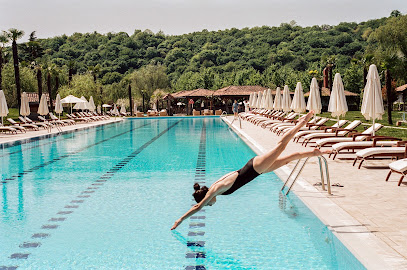
Pullman Tbilisi Axis Towers
Experience luxury and comfort at Pullman Tbilisi Axis Towers, your perfect base for exploring the vibrant city of Tbilisi, Georgia.
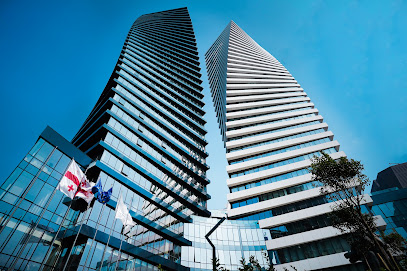
Hilton Garden Inn Tbilisi Chavchavadze
Experience modern comfort and Georgian hospitality at Hilton Garden Inn Tbilisi Chavchavadze, your ideal base for exploring Tbilisi's rich culture.
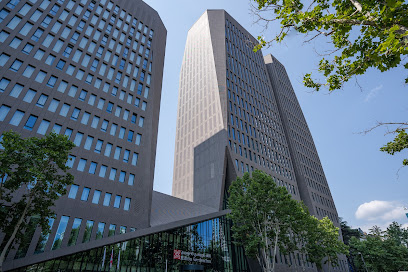
GUDAURI LOFT hotel ski resort
Discover the breathtaking beauty and luxury of Gudauri Loft, the premier ski resort in the Caucasus Mountains, where adventure meets relaxation.
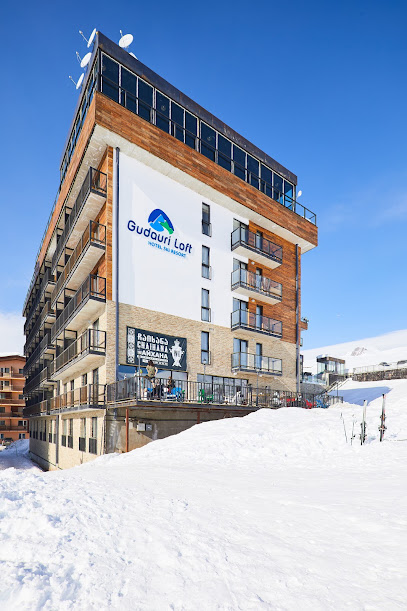
Hotel Sole Palace
Discover the perfect blend of comfort and tradition at Hotel Sole Palace in the heart of Old Tbilisi, close to all major attractions.
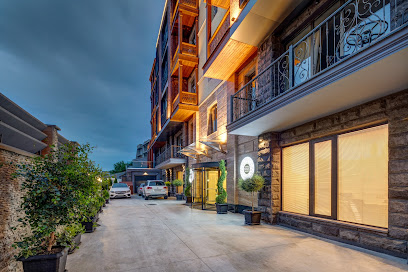
Kazbegi 5054
Experience breathtaking views and cozy accommodation at Kazbegi 5054, the perfect getaway in Stepantsminda, Georgia's stunning Caucasus region.
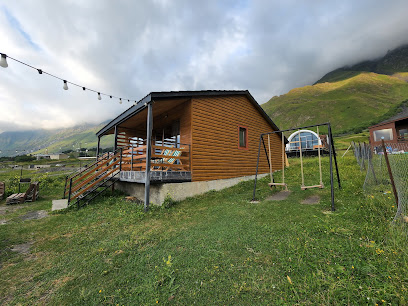
Azerbaijan Tour
Explore Azerbaijan's rich culture and stunning landscapes with tailored tours that promise unforgettable experiences in Baku and beyond.

Unmissable attractions to see
Fabrika Tbilisi
Explore Tbilisi's vibrant culture at Fabrika, a unique urban space blending Soviet history with modern art, food, and community.
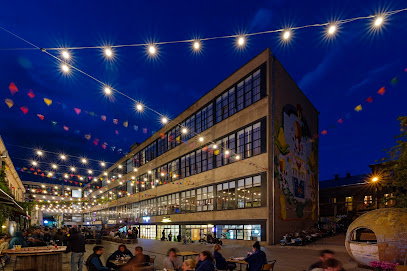
Ananuri Fortress Complex
Explore Ananuri Fortress: A historic Georgian castle with stunning architecture and panoramic views of the Zhinvali Reservoir.
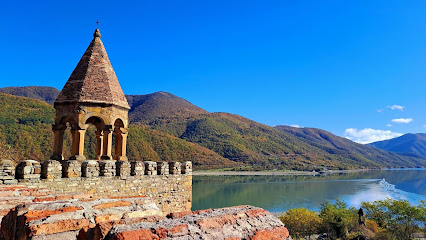
6 May Park
Discover Batumi's green heart: A historic park with a lake, zoo, dolphinarium, and endless recreation for all ages.
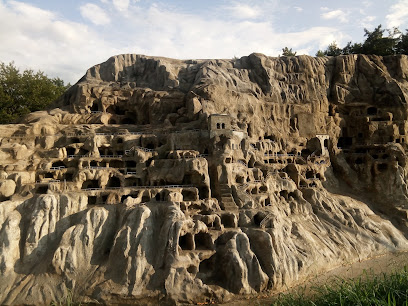
Batumi Piazza Square
Experience the charm of Italy in the heart of Batumi at Piazza Square, a vibrant hub of culture, music, and stunning architecture.
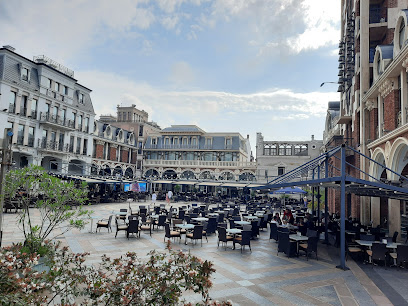
Dry Bridge Market
Discover unique antiques, Soviet memorabilia, and Georgian art at Tbilisi's famous Dry Bridge Market, a treasure trove of history and culture.
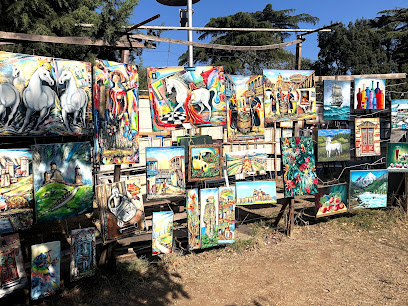
Lopota Lake Resort & Spa
Discover Kakheti's charm at Lopota Lake Resort & Spa: luxury accommodations, diverse activities, and exquisite wines await in a stunning natural setting.
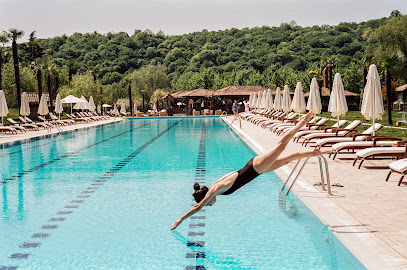
Gomismta
Escape to Gomismta, the 'Resort in Clouds' in Georgia's Guria region, for breathtaking views, pure mountain air, and an off-grid alpine experience.
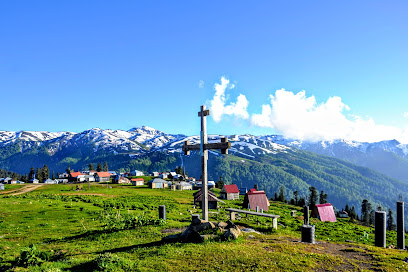
Dandalo Bridge
Discover the medieval marvel of Dandalo Bridge in Georgia, a stunning example of ancient engineering and a testament to the country's rich history.
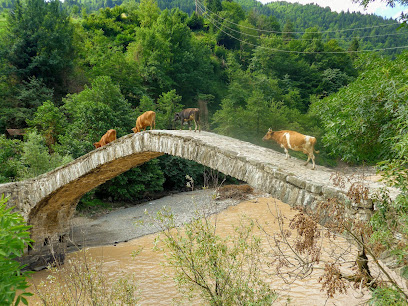
Waterfall
Discover the majestic Gveleti Waterfall near Stepantsminda: an easy hike to breathtaking views in the heart of the Caucasus Mountains.
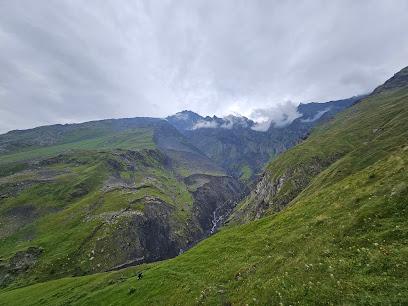
Ushguli Museum
Discover Svaneti's soul at Ushguli Museum: Explore ancient traditions and artifacts in Europe's highest inhabited village.
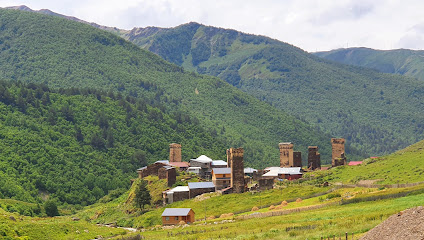
Bakuriani Ski Resort
Discover Bakuriani: A four-season mountain resort in Georgia offering skiing, hiking, and breathtaking Caucasus scenery for all ages.
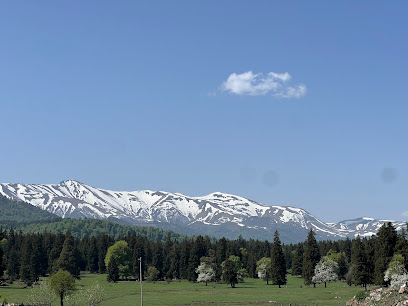
Essential places to dine
Batumi Alphabet Tower
Discover Batumi Alphabet Tower: A stunning tribute to Georgia's unique script with panoramic views over Batumi's beautiful coastline.
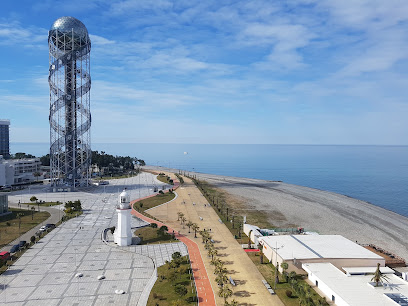
Hotels & Preference Hualing Tbilisi
Discover luxury and comfort at Hotels & Preference Hualing Tbilisi with stunning views and exceptional service in Georgia's capital.

Lopota Lake Resort & Spa
Discover unparalleled relaxation at Lopota Lake Resort & Spa in Georgia's scenic Kakheti region—where luxury meets nature.
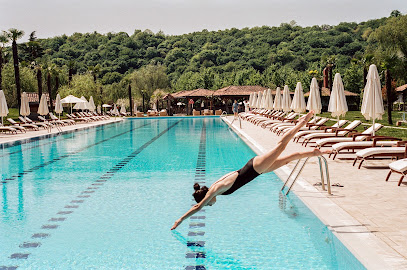
Beirut Restaurant
Experience authentic Lebanese flavors at Beirut Restaurant in Old Tbilisi - a must-visit culinary destination for food lovers.
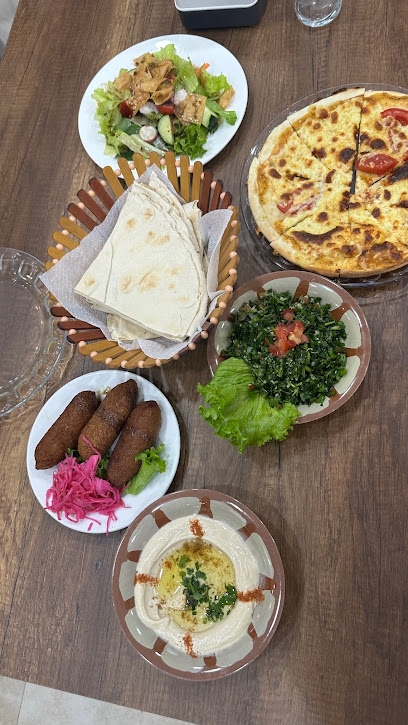
Gudauri Inn
Discover unparalleled comfort amidst breathtaking landscapes at Gudauri Inn in Georgia's captivating mountain region.
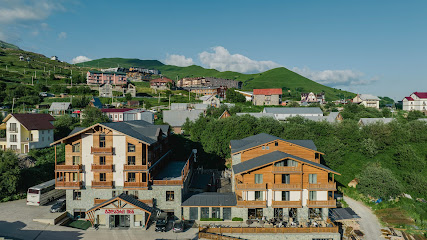
Black Sea - Fish Restaurant in Batumi
Experience exquisite seafood dining at Black Sea Fish Restaurant in Batumi—where fresh flavors meet breathtaking coastal views.
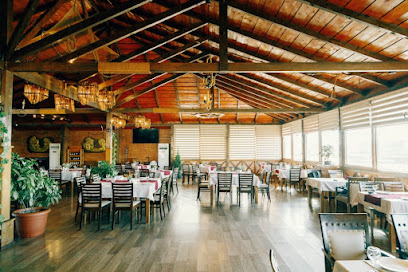
Best Western Kutaisi
Experience modern comfort and local charm at Best Western Kutaisi - your perfect base for exploring Georgia's rich heritage.
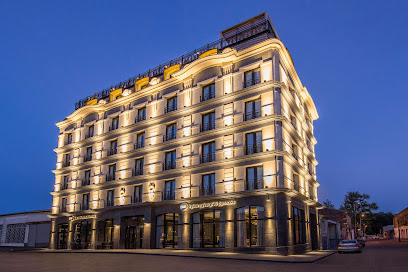
Mecca Georgian-Arabic Restaurant مطعم مكة
Experience the unique blend of Middle Eastern and Georgian cuisine at Mecca Restaurant in Batumi – where every dish tells a story.
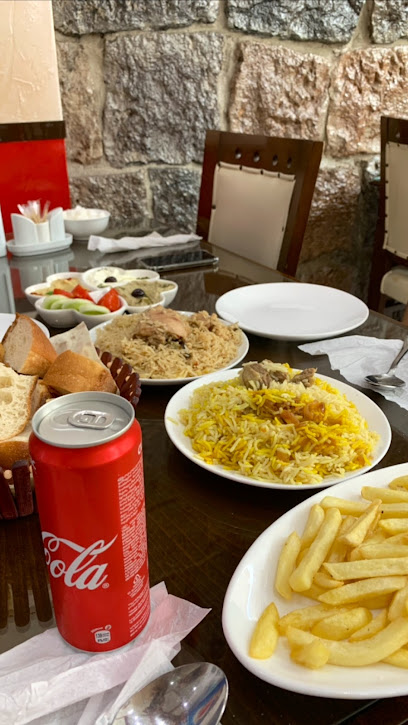
The Terrace Signagi
Discover authentic Georgian flavors at The Terrace Signagi while enjoying breathtaking views over Sighnaghi's scenic landscapes.
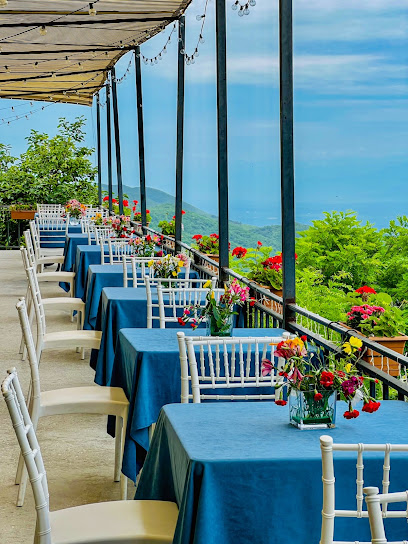
Pullman Tbilisi Axis Towers
Discover unparalleled luxury at Pullman Tbilisi Axis Towers - where modern elegance meets Georgian hospitality in the heart of Tbilisi.
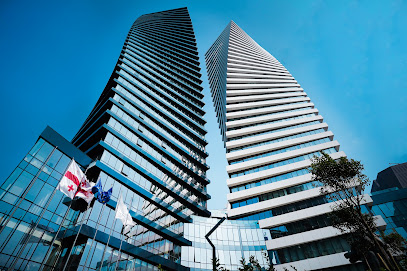
Vinotel
Experience authentic Georgian hospitality at Vinotel – your gateway to exploring Tbilisi's rich culture and exquisite culinary delights.

Arabic Restaurant Pressed Gulf Tbilisi
Experience authentic Arabic cuisine at Pressed Gulf Restaurant in Tbilisi's vibrant Saburtalo district.
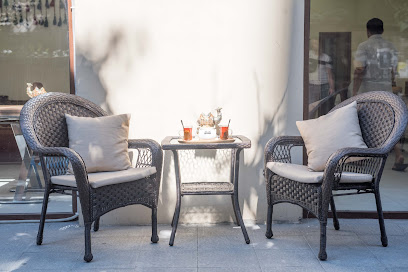
Hilton Garden Inn Tbilisi Chavchavadze
Discover modern comfort and exceptional service at Hilton Garden Inn Tbilisi Chavchavadze - your gateway to Georgia's vibrant capital.
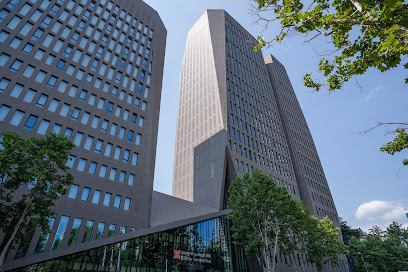
Blue Mountains • ცისფერი მთები
Explore the breathtaking beauty and rich culture of Georgia's Blue Mountains - a perfect family-friendly destination for adventure seekers.
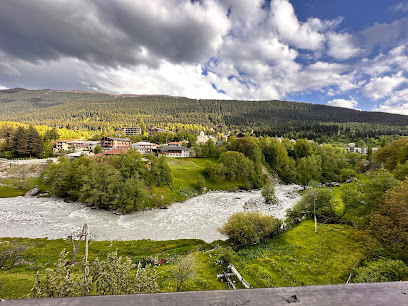
GUDAURI LOFT hotel ski resort
Discover unparalleled luxury and adventure at Gudauri Loft Hotel Ski Resort - your gateway to Georgia's breathtaking Caucasus Mountains.
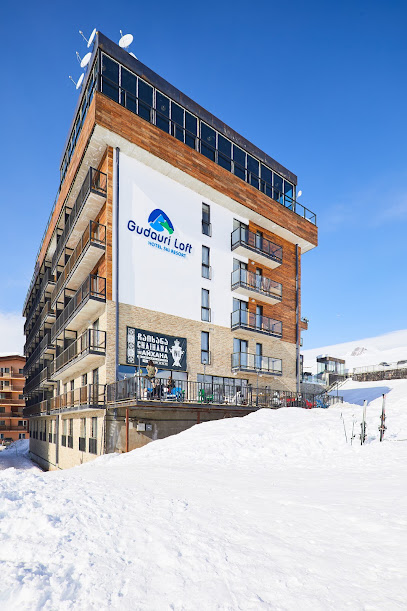
Markets, malls and hidden boutiques
Tbilisi Mall
Experience the ultimate shopping and entertainment hub at Tbilisi Mall, where local charm meets global brands in the heart of Georgia.
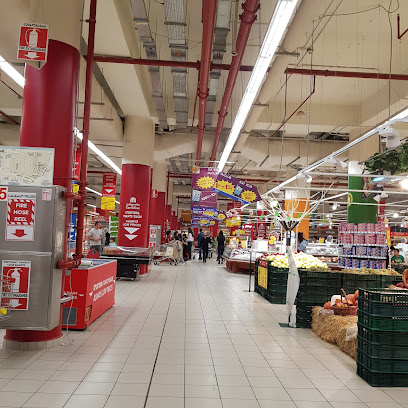
Galleria Tbilisi
Explore Galleria Tbilisi, where shopping meets culture in the heart of Georgia's vibrant capital.
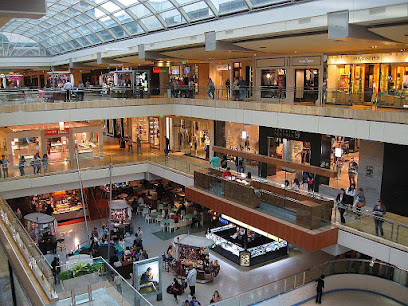
Rike Park
Discover the charm of Rike Park, a lush urban retreat in Tbilisi, adorned with stunning views, artistic installations, and local delights.
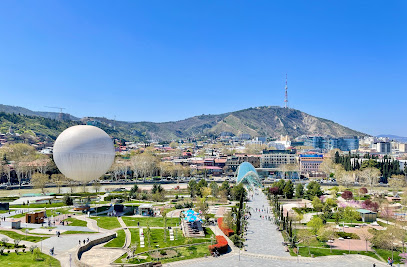
Dezerter Bazaar
Experience the vibrant atmosphere and local flavors of Dezerter Bazaar, Tbilisi's must-visit produce market for an authentic Georgian experience.
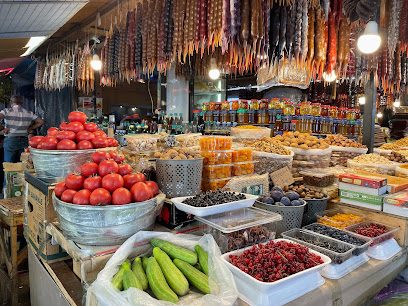
Dry Bridge Market
Discover the Rich Culture and Unique Treasures of Tbilisi at the Iconic Dry Bridge Market - A Must-Visit Flea Market Experience.
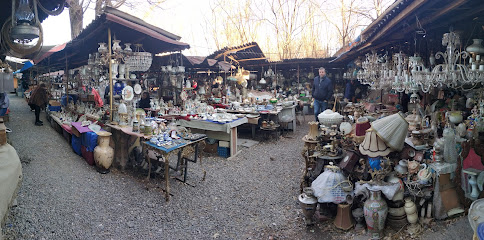
Gldani Moli
Experience the vibrant atmosphere of Gldani Moli, Tbilisi's premier shopping mall with diverse brands, dining, and entertainment for all.
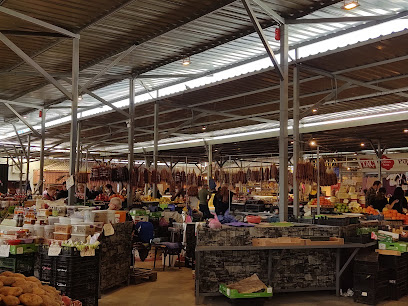
Lilo Mall
Explore Tbilisi's vibrant Lilo Mall, a premier shopping destination blending local charm with international flair for an unforgettable retail experience.
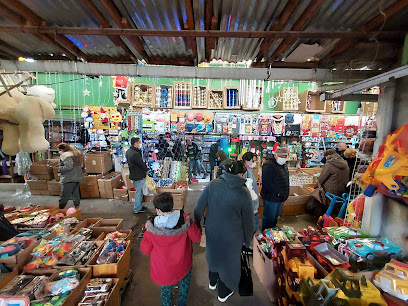
Batumi Mall
Experience shopping like never before at Batumi Mall, a premier destination for retail therapy, dining, and entertainment on the stunning Black Sea coast.

Karvasla
Discover the vibrant shopping scene at Karvasla, Tbilisi's top destination for fashion, dining, and entertainment in one lively location.
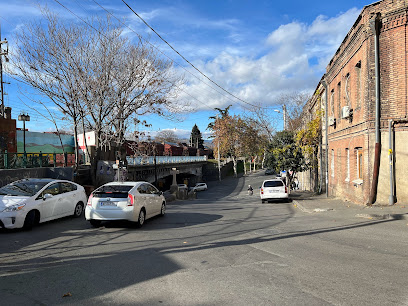
Lopota Lake Resort & Spa
Discover tranquility and luxury at Lopota Lake Resort & Spa, a picturesque getaway in the heart of Georgia, perfect for relaxation and adventure.
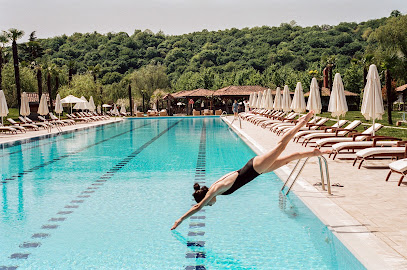
Wine Factory N1
Experience the exquisite flavors of Georgian wine and cuisine at Wine Factory N1, a must-visit attraction in Tbilisi's historic district.
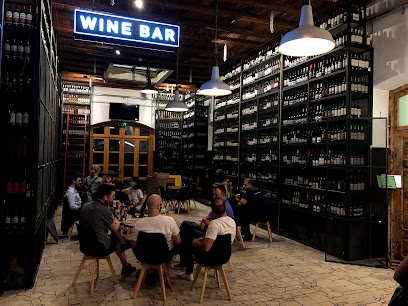
Gudauri Inn
Experience the serene beauty of Gudauri Inn, where comfort meets the majestic landscapes of the Caucasus mountains.
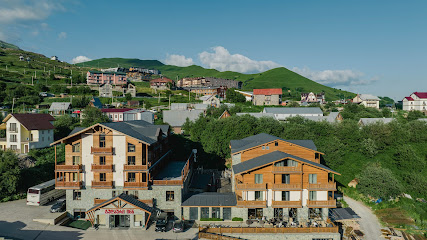
Samgori Bazaar
Explore the bustling Samgori Bazaar in Tbilisi, where fresh produce, local delicacies, and vibrant culture come together in a unique market experience.
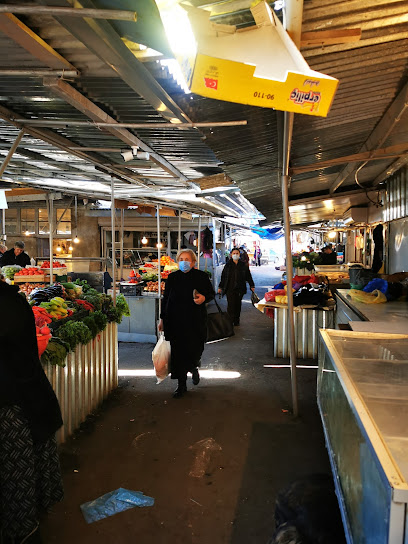
Pullman Tbilisi Axis Towers
Experience unparalleled luxury and breathtaking views in the heart of Tbilisi at Pullman Tbilisi Axis Towers, your gateway to the vibrant Georgian capital.
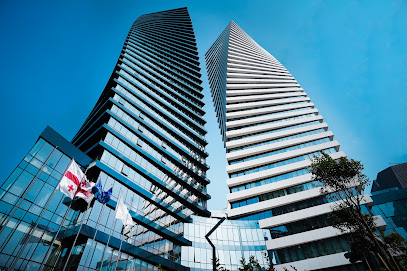
Hilton Garden Inn Tbilisi Chavchavadze
Experience modern luxury at Hilton Garden Inn Tbilisi Chavchavadze, ideally located for exploring the vibrant culture and attractions of Tbilisi.
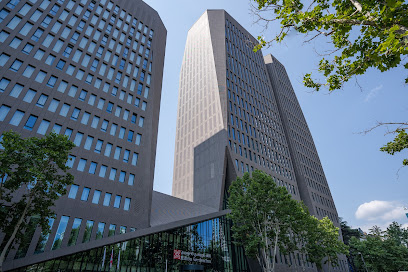
Essential bars & hidden hideouts
Heart of Batumi
Experience authentic Georgian cuisine at the Heart of Batumi, where every dish tells a story of tradition and culture in a warm, inviting atmosphere.
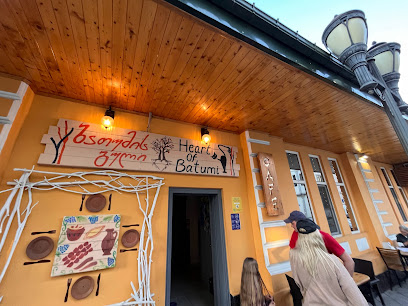
Hotels & Preference Hualing Tbilisi
Experience the epitome of luxury at Hotels & Preference Hualing Tbilisi, where comfort meets stunning views of Tbilisi Sea.

Lopota Lake Resort & Spa
Discover the luxurious Lopota Lake Resort & Spa, where nature meets comfort in Georgia's breathtaking landscapes.
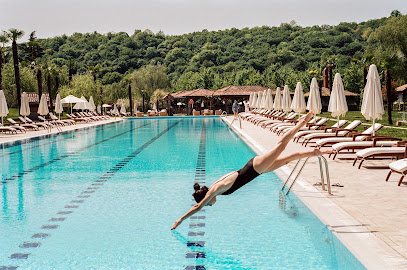
Burger Bar
Discover the flavors of Tbilisi at Burger Bar, where juicy burgers and a lively atmosphere await every visitor.
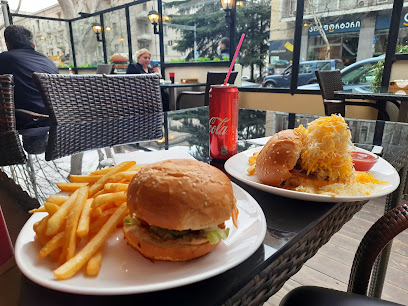
Restaurant Cozy Corner Kazbegi
Experience authentic Georgian cuisine and breathtaking views at Restaurant Cozy Corner in the heart of Kazbegi.
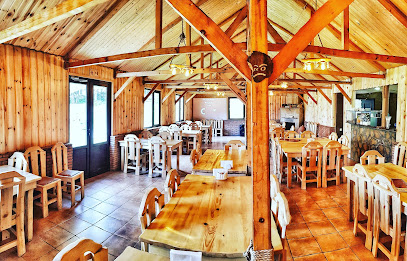
Stelzenhaus
Discover the best of Georgian and international cuisine at Stelzenhaus, a vibrant restaurant in the heart of Old Tbilisi.
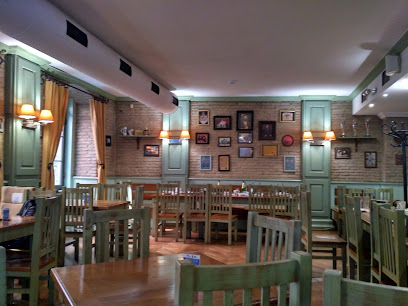
Gudauri Inn
Experience unparalleled mountain views and exceptional comfort at Gudauri Inn, your ultimate getaway in the heart of Georgia's stunning landscapes.
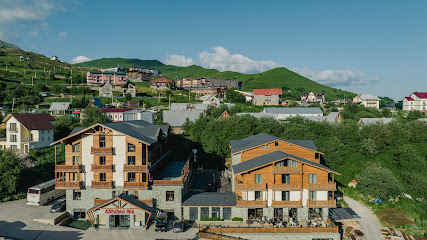
Kala
Experience the rich flavors of Georgia at Café Kala, a cozy restaurant in Old Tbilisi offering a delightful mix of local and international cuisine.
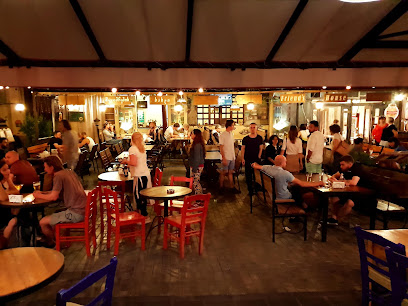
Black Sea - Fish Restaurant in Batumi
Experience the best of Batumi's seafood at the Black Sea Fish Restaurant, where fresh flavors meet stunning coastal views.
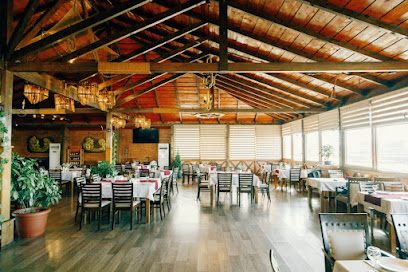
Iveria Beach
Experience the beauty and flavors of Batumi at Iveria Beach, a premier restaurant and lounge along the breathtaking Black Sea coast.
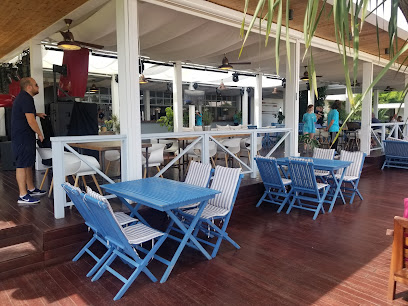
The Nali Pub
Discover the vibrant atmosphere of The Nali Pub, Tbilisi's premier Irish pub offering great drinks and a welcoming ambiance.
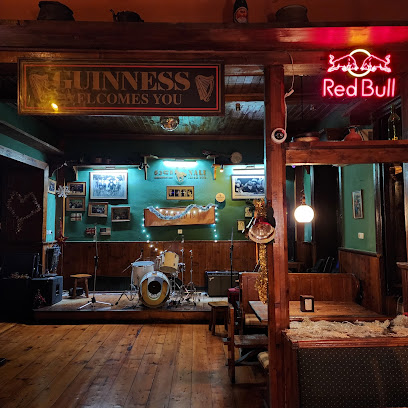
Marani Restaurant & Bar
Experience the rich flavors and warm hospitality of Georgian cuisine at Marani Restaurant & Bar in Old Tbilisi.
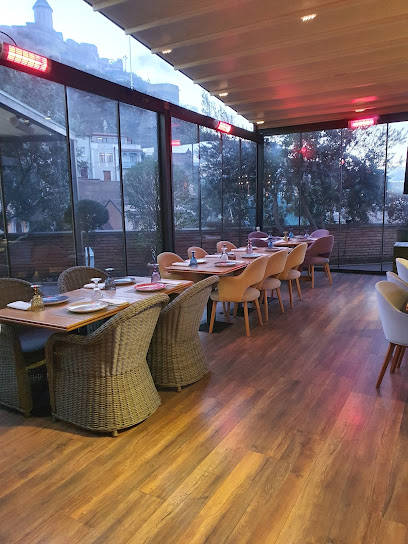
Maisi - Restaurant in Kazbegi
Experience authentic Georgian cuisine with breathtaking mountain views at Maisi Restaurant in Kazbegi, a true culinary gem for every traveler.
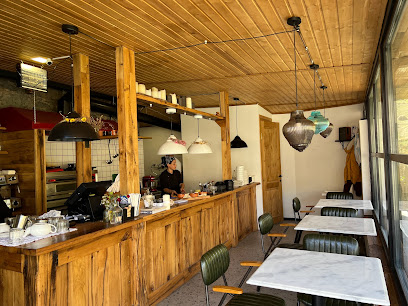
Vinotel
Discover the charm of Old Tbilisi at Vinotel, where comfort meets Georgian hospitality in a historic setting.

Local Phrases about Arabia Mountain
-
- HelloMarhaba
[mar-ha-ba] - GoodbyeMa'a as-salama
[ma-a as-sa-la-ma] - YesNa'am
[na-am] - NoLa
[la] - Please/You're welcomeMin fadlik
[min fad-lik] - Thank youShukran
[shuk-ran] - Excuse me/SorryAsef
[a-sef] - How are you?Kif halak?
[kif ha-lak] - Fine. And you?Mnih. Wa ant?
[m-nih. wa ant] - Do you speak English?Hal tatakalam al-ingliziya?
[hal ta-ta-ka-lam al-ing-li-zi-ya] - I don't understandAna la afham
[a-na la af-ham]
- HelloMarhaba
-
- I'd like to see the menu, pleaseAurid an ara al-qimma, min fadlik
[au-rid an a-ra al-ki-ma, min fad-lik] - I don't eat meatAna la akul al-lahm
[a-na la a-kul al-lahm] - Cheers!Sahtain!
[sa-h-tain] - I would like to pay, pleaseAurid an adfa'a, min fadlik
[au-rid an ad-fa-a, min fad-lik]
- I'd like to see the menu, pleaseAurid an ara al-qimma, min fadlik
-
- Help!Almusada!
[al-mu-sa-da] - Go away!Izhab!
[iz-hab] - Call the Police!Iltija' bil-shurta!
[il-ti-ja' bil-shur-ta] - Call a doctor!Iltija' bil-tabib!
[il-ti-ja' bil-ta-bib] - I'm lostTada'tu
[ta-da-tu] - I'm illAna mareed
[a-na ma-reed]
- Help!Almusada!
-
- I'd like to buy...Aurid an ashtari...
[au-rid an ash-ta-ri] - I'm just lookingAna faqat atadabbar
[a-na fa-qat a-ta-dab-bar] - How much is it?Kam thamanuh?
[kam tha-ma-nuh] - That's too expensiveHadha ghalin jiddan
[ha-dha gha-lin jid-dan] - Can you lower the price?Hal tastati' taqil al-sa'ara?
[hal ta-sta-ti' ta-qil al-sa-'a-ra]
- I'd like to buy...Aurid an ashtari...
-
- What time is it?Kam alwaqt?
[kam al-waqt] - It's one o'clockAlwaqt wahid
[al-waqt wa-hid] - Half past (10)Nisf al-'ashra
[nisf al-'ash-ra] - MorningSabaah
[sa-baah] - AfternoonBa'd al-duhr
[ba'd al-duhr] - EveningAl-masa
[al-ma-sa] - YesterdayAms
[ams] - TodayAl-yawm
[al-yawm] - TomorrowGhadan
[gha-dan] - 1Waahid
[waahid] - 2Ithnaan
[ith-naan] - 3Thalatha
[tha-la-tha] - 4Arba'a
[ar-ba'a] - 5Khamsa
[kham-sa] - 6Sitta
[sit-ta] - 7Sab'a
[sa-ba'a] - 8Thamania
[tha-ma-nia] - 9Tisa'a
[ti-sa'a] - 10Ashara
[a-sha-ra]
- What time is it?Kam alwaqt?
-
- Where's a/the...?Ayna al...
[ay-na al] - What's the address?Ma huwa al-alamat?
[ma hu-wa al-a-la-mat] - Can you show me (on the map)?Hal tastati' an tu'ayyinani (ala al-khari'ta)?
[hal ta-sta-ti' an tu-'ay-yi-na-ni (a-la al-kha-ri-ta)] - When's the next (bus)?Mata huwa al-autobis al-qadim?
[ma-ta hu-wa al-au-to-bis al-qa-dim] - A ticket (to ....)Tadhkirah (ila ...)
[ta-dhki-rah (i-la ...)]
- Where's a/the...?Ayna al...
History of Arabia Mountain
-
Arabia Mountain is part of the Piedmont region of Georgia and is a monadnock, which is an isolated rock hill or small mountain that rises abruptly from a gently sloping or virtually level surrounding plain. It was formed over 400 million years ago during the Precambrian era. The granite that makes up Arabia Mountain is part of the Lithonia Gneiss, a type of coarse-grained rock that was formed through the metamorphosis of sedimentary rock under intense heat and pressure.
-
Before European settlers arrived, the land surrounding Arabia Mountain was inhabited by Native American tribes, primarily the Creek and Cherokee nations. Evidence of their presence includes ancient fish traps, pottery fragments, and stone tools found in the area. These tribes relied on the local ecosystem for food, medicine, and materials for their daily lives.
-
In the early 19th century, European settlers began to move into the region. The land was fertile and ideal for agriculture. As a result, farming communities started to develop around Arabia Mountain. The settlers also took advantage of the natural resources, particularly the granite, which they used extensively in construction.
-
By the late 19th and early 20th centuries, Arabia Mountain became a significant site for granite quarrying. The granite from Arabia Mountain was highly prized for its durability and was used in various construction projects, including buildings, bridges, and monuments. The quarrying industry brought economic growth to the area but also led to environmental changes that are still visible today, including quarry pits and rock formations altered by human activity.
-
During the Great Depression in the 1930s, the Civilian Conservation Corps (CCC) established a camp near Arabia Mountain as part of a broader effort to provide employment and conserve natural resources. The CCC workers built trails, planted trees, and undertook other conservation projects that helped to preserve the natural beauty of the area. Some of the trails and structures they built are still in use today.
-
In 2006, Congress designated Arabia Mountain and its surrounding areas as a National Heritage Area. This designation recognizes the region's unique natural, cultural, and historical significance. The Arabia Mountain National Heritage Area encompasses over 40,000 acres and includes numerous trails, historic sites, and conservation areas. Efforts are ongoing to protect the landscape, promote sustainable tourism, and educate the public about the area's rich history and ecology.
-
Arabia Mountain is not just a natural landmark but also a cultural symbol for the local community. It represents a connection to the land and the history of the various peoples who have lived in the area. Conservation efforts continue to focus on preserving the delicate ecosystems of the mountain, including the unique granite outcrops, wetlands, and rare plant species such as the diamorpha smallii. These efforts are supported by local organizations, volunteers, and government agencies working together to ensure that Arabia Mountain remains a vital and vibrant part of Georgia's natural heritage.
Arabia Mountain Essentials
-
Arabia Mountain is located in DeKalb County, Georgia, approximately 20 miles east of downtown Atlanta. The nearest major airport is Hartsfield-Jackson Atlanta International Airport (ATL). From the airport, you can rent a car and drive to Arabia Mountain, which takes about 40 minutes via I-20 East. Alternatively, you can take a MARTA train to the Kensington Station and then use a rideshare service or taxi to reach the Arabia Mountain area.
-
Once you arrive in the Arabia Mountain area, you can explore the mountain and its surroundings by car, bike, or on foot. There are multiple parking areas available at the Arabia Mountain National Heritage Area. Biking is a popular option, with the Arabia Mountain PATH (AMP) offering over 30 miles of scenic trails. Rideshare services and taxis are also available for those who prefer not to drive.
-
The official currency in the United States is the US Dollar (USD). Credit and debit cards are widely accepted in most establishments around Arabia Mountain, including restaurants, shops, and gas stations. It is advisable to carry some cash for smaller purchases or in case you visit areas with limited card payment options. ATMs are available in nearby towns such as Lithonia and Conyers.
-
Arabia Mountain and its surrounding areas are generally safe for tourists. However, it is always wise to take standard safety precautions. Avoid leaving valuables in your car and be mindful of your belongings when hiking or biking. While there are no specific high-crime areas targeting tourists, it is best to avoid isolated areas after dark and to stay on marked trails.
-
In case of emergency, dial 911 for immediate assistance. The nearest medical facilities are located in Lithonia and Conyers, which are both within a 15-20 minute drive from Arabia Mountain. It is recommended to carry a basic first aid kit and have travel insurance that covers medical emergencies. For minor health issues, pharmacies are available in nearby towns.
-
Fashion: Do wear comfortable and weather-appropriate clothing, especially if you plan to hike. Avoid wearing flip-flops or sandals on trails. Religion: Do be respectful if you visit any religious sites or events in the area. Public Transport: Do use rideshare services or taxis if you do not have a rental car. MARTA does not directly service the Arabia Mountain area, so plan accordingly. Greetings: Do greet people with a smile or a simple 'hello.' Southerners are known for their hospitality. Eating & Drinking: Do try local Southern cuisine at nearby restaurants. Do not litter and make sure to carry out any trash you bring into the park.
-
To experience Arabia Mountain like a local, consider visiting during less busy times such as weekdays or early mornings. Bring a picnic and enjoy it at one of the designated picnic areas. Engage with park rangers or volunteers, who can provide valuable insights and recommendations. Don't miss the opportunity to explore the various trails, including the Mountain Top Trail for stunning views and the Arabia Lake Trail for a serene experience. If visiting in the spring, try to catch the Diamorpha smallii in bloom, creating a beautiful red carpet on the rock outcrops.
Nearby Cities to Arabia Mountain
-
Things To Do in Mtskheta
-
Things To Do in Telavi
-
Things To Do in Tbilisi
-
Things To Do in Signagi
-
Things To Do in Sighnaghi
-
Things To Do in Kutaisi
-
Things To Do in Haghpat
-
Things To Do in Alaverdi
-
Things To Do in Akhaltsikhe
-
Things To Do in Vanadzor
-
Things To Do in Dilijan
-
Things To Do in Gyumri
-
Things To Do in Aparan
-
Things To Do in Tsaghkadzor
-
Things To Do in Ganja









